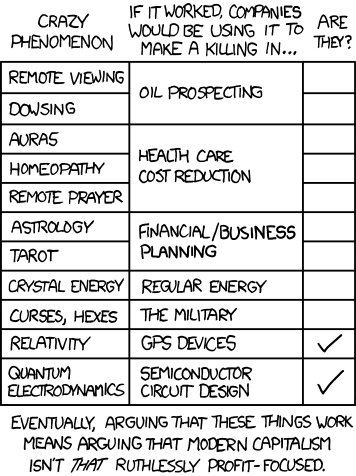TomC
Bless Your Heart!
- Joined
- Oct 1, 2020
- Messages
- 11,239
- Location
- Midwestern USA
- Gender
- Faggot
- Basic Beliefs
- Agnostic deist
I would be inclined to take this much further than the physical frailty. Humans are also astoundingly stupid. To me, the real Problem of Evil isn't the violent and uncaring universe. It's Human Nature.Why would an intelligent, capable entity of any kind make humans with such physical frailty?
Humans are born ignorant, fearful, needy, and fragile. Our perceptions and mental processes are weak. We tend to live and make everyday decisions based mostly on amoral instincts, habits, illusions, and short sighted self-serving idiocy. Our ability to learn better behavior is extremely limited.
Human Nature apparently evolved as the outcome of behaviors that resulted in the spread of our forebears. If we are the product of a Sentient Designer, It is a viciously wanton being. I find it impossible to believe that such an entity is more than a fictional character created by primitive people in their own image.There are literally far more reasons to believe we were not purposely built by a capable entity than the opposite.
People are very prone to illusions, including the belief that they are smart and informed enough to figure out things that they know nothing about. Including inventing explanations about why their favorite God image is all powerful, but not capable of making humans smarter or better informed than the clever apes with opposable thumbs we evolved from.This likely explains all the attempted mileage over souls and spirits and supernature.
Tom

